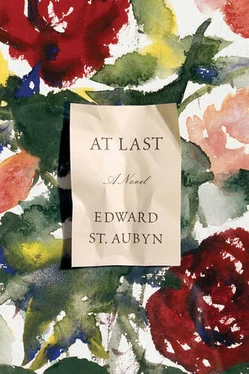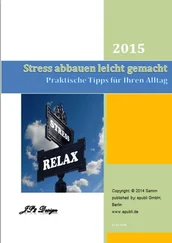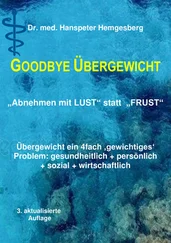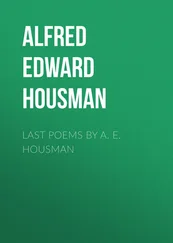He had gone to America after receiving a letter from Brown and Stone LLP, the lawyers for the JohnJ. Jonson Corporation, known affectionately as ‘Triple J’. They had been informed by ‘the family’ — Patrick now suspected that it was Henry who had told them — that Eleanor Melrose was incompetent to administer her own affairs, and since she was the beneficiary of a trust created by her grandfather, of which Patrick was the ultimate beneficiary, measures should be taken to procure him a US power of attorney in order to administer the money on his mother’s behalf. All this was news to Patrick and he was freshly astonished by his mother’s capacity for secrecy. In his amazement he failed to ask how much the trust contained and he got onto the plane to New York not knowing whether he would be put in charge of twenty thousand dollars or two hundred thousand.
Joe Rich and Peter Zirkovsky met him in one of the smaller oval-tabled, glass-sided conference rooms of Brown and Stone’s offices on Lexington Avenue. Instead of the sulphurous yellow legal pads he was expecting, he found lined cream paper with the name of the firm printed elegantly on the top of each page. An assistant photocopied Patrick’s passport, while Joe examined the doctor’s letter testifying to Eleanor’s incapacity.
‘I had no idea about this trust,’ said Patrick.
‘Your mother must have been keeping it as a nice surprise,’ said Peter with a big lazy smile.
‘It might be that,’ said Patrick tolerantly. ‘Where does the income go?’
‘Currently we’re sending it to…’ Peter flicked over a sheet of paper, ‘the Association Transpersonel at the Banque Populaire de la Côte d’Azur in Lacoste, France.’
‘Well, you can stop that straight away,’ said Patrick.
‘Whoa, slow down,’ said Joe. ‘We’re going to have to get you a power of attorney first.’
‘That’s why she didn’t tell me about it,’ said Patrick, ‘because she’s continuing to subsidize her pet charity in France while I pay for her nursing-home fees in London.’
‘She may have lost her competence before she had a chance to change the instructions,’ said Peter, who seemed determined to furnish Patrick with a loving mother.
‘This letter is fine,’ said Joe. ‘We’re going to have to get you to sign some documents and get them notarized.’
‘How much money are we talking about?’ asked Patrick.
‘It’s not a large Jonson trust and it’s suffered in the recent stock-market corrections,’ said Joe.
‘Let’s hope it behaves incorrigibly from now on,’ said Patrick.
‘The latest valuation we have,’ said Peter, glancing down at his notes, ‘is two point three million dollars, with an estimated income of eighty thousand.’
‘Oh, well, still a useful sum,’ said Patrick, trying to sound slightly disappointed.
‘Enough to buy a country cottage!’ said Peter in an absurd impersonation of an English accent. ‘I gather house prices are pretty crazy over there.’
‘Enough to buy a second room,’ said Patrick, eliciting a polite guffaw from Peter, although Patrick could in fact think of nothing he wanted more than to separate the bed from the sit.
Walking down Lexington Avenue towards his hotel in Gramercy Park, Patrick began adjusting to his strange good fortune. The long arm of his great-grandfather, who had died more than half a century before Patrick was born, was going to pluck him out of his cramped living quarters and get him into a place where there might be room for his children to stay and his friends to visit. In the meantime it would pay for his mother’s nursing home. It was puzzling to think that this complete stranger was going to have such a powerful influence on his life. Even his benefactor had inherited his money. It had been his father who had founded the Jonson Candle Company in Cleveland, in 1832. By 1845 it was one of the most profitable candle companies in the country. Patrick could remember reading the founder’s uninspiring explanation for his success: ‘We had a new process of distilling cheap greases. Our competitors were using costly tallow and lard. Candles were high and our profits were large for a number of years.’ Later, the candle factory diversified into paraffin, oil treatment and hardening processes, and developed a patented compound that became an indispensable ingredient in dry cleaning around the world. The Jonsons also bought buildings and building sites in San Francisco, Denver, Kansas City, Toledo, Indianapolis, Chicago, New York, Trinidad and Puerto Rico, but the original fortune rested on the hard-headedness of the founder who had ‘died on the job’, falling through a hatchway in one of his own factories, and also on those ‘cheap greases’ which were still lubricating the life of one of his descendants a hundred and seventy years after their discovery.
John J. Jonson, Jr., Eleanor’s grandfather, was already sixty by the time he finally married. He had been travelling the world in the service of his family’s burgeoning business, and was only recalled from China by the death of his nephew Sheldon in a sledging accident at St Paul’s School. His eldest nephew, Albert, had already died from pneumonia at Harvard the year before. There were no heirs to the Jonson fortune and Sheldon’s grieving father, Thomas, told his brother it was his duty to marry. John accepted his fate and, after a brief courtship of a general’s daughter, got married and moved to New York. He fathered three daughters in rapid succession, and then dropped dead, but not before creating a multitude of trusts, one of which was meandering its way down to Patrick, as he had discovered that afternoon.
What did this long-range goodwill mean, and what did it say about the social contract that allowed a rich man to free all of his descendents from the need to work over the course of almost two centuries? There was something disreputable about being saved by increasingly remote ancestors. When he had exhausted the money given to him by a grandmother he scarcely knew, money arrived from a great-grandfather he could never have known. He could only feel an abstract gratitude towards a man whose face he would not have been able to pick out from a heap of sepia daguerreotypes. The ironies of the dynastic drive were just as great as the philanthropic ironies generated by Eleanor, or her Great-Aunt Virginia. No doubt his grandmother and his great-grandfather had hoped to empower a senator, enrich a great art collection or encourage a dazzling marriage, but in the end they had mainly subsidized idleness, drunkenness, treachery and divorce. Were the ironies of taxation any better: raising money for schools and hospitals and roads and bridges, and spending it on blowing up schools and hospitals and roads and bridges in self-defeating wars? It was hard to choose between these variously absurd methods of transferring wealth, but just for now he was going to cave in to the pleasure of having benefited from this particular form of American capitalism. Only in a country free from the funnelling of primogeniture and the levelling of égalité could the fifth generation of a family still be receiving parcels of wealth from a fortune that had essentially been made in the 1830s. His pleasure coexisted peacefully with his disapproval, as he walked into his dim and scented hotel, which resembled the film set of an expensive Spanish brothel, with the room numbers sewn into the carpet, on the assumption that the guests were on all fours after some kind of near overdose and could no longer find their rooms as they crawled down the obscure corridors.
The phone was ringing when he arrived in the velvet jewel box of his room, bathed in the murky urine light of parchment lampshades and presumptive hangover. He groped his way to the bedside table, clipping his shin on the bowed legs of a chair designed to resemble the virile effeminacy of a matador’s jacket, with immense epaulettes jutting out proudly from the top of its stiff back.
Читать дальше












